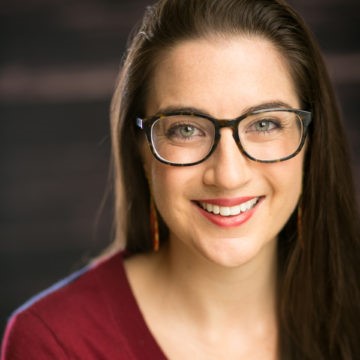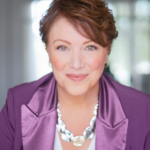Julia Freeland Fisher

A highly regarded expert in the fields of blended and competency-based learning
Topic Categories:
- Expert on the Future of Education, Focused on Building Students’ Social Capital, Competency-Based Education and Blending Learning
- Director, Education at Clayton Christensen Institute
- Author, “Who You Know”
*Fee ranges are presented as a guideline only. Speaker fees are subject to change without notice. For an exact quote, please contact your Speaker Exchange Agency representative.
Who you know matters, especially in education. Julia Freeland Fisher believes expanding students’ networks – their stock of “social capital” – will be a game changer for the future of education.
A highly regarded expert in the fields of blended and competency-based learning, Fisher aims to expand who students know by enhancing their access and ability to navigate new peer, mentor and professional networks. Her current research, and the subject of her newly published book, “Who You Know: Unlocking Innovations That Expand Students’ Networks” (Jossey-Bass, August 2018), focuses on the emerging tools and practices that can accomplish this. The director of research at the Clayton Christensen Institute for Disruptive Innovation, she and her team are working to educate policymakers and community leaders on the power of disruptive innovation in the K-12 and higher education spheres. Fisher is dedicated to transforming monolithic, factory-model education systems into student-centered designs that educate every student successfully and enable each to realize his or her fullest potential.
Fisher has published and spoken extensively on trends in the EdTech market, blended learning, competency-based education and the future of schools. Her writing has appeared in outlets including EducationNext, Forbes, Entrepreneur.com, Chicago Sun-Times and the New Hampshire Union Leader. Her recent white papers – including “The educator’s dilemma: When and how schools should embrace poverty relief” with Michael B. Horn, “Schools and software: What’s now and what’s next” with Alex Hernandez, and “Blending toward competency: Early patterns of blended learning and competency-based education in New Hampshire” – zero in on how disruptive innovations are changing the education landscape.
Prior to joining the Institute, Fisher worked at NewSchools Venture Fund, a venture philanthropy organization that supports education entrepreneurs who are transforming public education. She also served as an instructor in the Yale College Seminar Program. Fisher holds a bachelor’s degree from Princeton University and a JD from Yale Law School.
Online and blended learning are disrupting the traditional classroom model that has barely budged for over a century. For the first time ever, we have the opportunity to educate each student as an individual. We’re now empowered to provide unique learning experiences at a flexible pace. But personalized learning – as a concept – encompasses an intricate alignment of models, goals and student supports that the field is very much still trying to figure out, Julia Freeland Fisher explains. To get there, we need a keen understanding of the philosophies, policies and practices that guide competency-based education and blended learning. She also discusses why we must bear in mind that personalized learning is a means, not an end. “Defining those ends clearly will make or break how personalized learning shapes students’ futures in the long run.”
Historically, our education system has focused on what students do and don’t know, and ignored almost entirely who they know. The real opportunity gaps are not just knowledge and skill gaps; they are gaps in students’ networks and access to power, argues Julia Freeland Fisher. Who you know matters – a lot. Fisher believes that with the rise of technology, we have unprecedented opportunity to build a system invested in expanding students’ networks by connecting them to industry experts, mentors and peers otherwise out of reach. With this stronger focus on helping students build social capital, schools and vendors together stand to address chronic challenges that have long plagued education. Fisher delves deep into this missing piece of the education reform conversation, with a particular focus on how technology will help spur the transformation. She explores the opportunities for and responsibilities of schools, vendors, entrepreneurs and investors.
Education technology and software companies have seen unprecedented investment over the past five years. But the booming supply of EdTech tools doesn’t always meet the demands of the classroom, says Julia Freeland Fisher. Teachers, administrators, students and parents want a seamless, supportive experience as they weave technology into their lives; the EdTech market is not always designed to get us there. Fisher believes this can – and will – change. She discusses the ways in which tools need to integrate with one another to create a coherent portrait of student performance. She also explains how new platforms that facilitate anytime, anywhere learning will likely emerge in the coming years.
Want to bring Julia Freeland Fisher to your next event? Please tell us a little about your event, and we will get back to you shortly!




